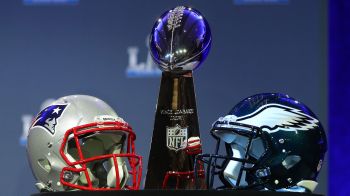While Straight Outta Compton continues to heat up the box office, journalist Dee Barnes continues to speak out about her abuse at the hands of Dr. Dre in a response to his apology.
After Barnes wrote,“Here’s What’s Missing From Straight Outta Compton: Me and the Other Women Dr. Dre Beat Up,” for Gawker, she turned the spotlight on the controversy surrounding the absence of the group’s misogynist and abusive past in the biopic. Dre responded with a statement of apology to the New York Times, addressing all the women he’s abused. His statement read:
I apologize to the women I’ve hurt. I deeply regret what I did and know that it has forever impacted all of our lives…Twenty-five years ago I was a young man drinking too much and in over my head with no real structure in my life. However, none of this is an excuse for what I did. I’ve been married for 19 years and every day I’m working to be a better man for my family, seeking guidance along the way. I’m doing everything I can so I never resemble that man again.
Barnes followed up, expressing hope that Dre was sincere about his regret. In her response essay in Gawker, she wrote:
Dr. Dre has matured, and the women he’s hurt, including myself, have endured. I’m proud to be able to say goodbye to the man who at one point was straight outta fucks to give, as he consistently dismissed and disrespected any mention of his assault history. Goodbye to the man who didn’t deny it and even bragged, “I just did it, you know. Ain’t nothing you can do now by talking about it. Besides, it ain’t no big thing–I just threw her through a door.”
In a society that forgets and forgives this type of violence very quickly, Barnes’ story had been swept under the rug for over two decades. She made it clear that although she acknowledged Dre’s apology, she did not decide to write her initial essay for any fame or publicity surrounding the film.
“No one wants to see their heroes criticized. And if they are African-American, the community at large becomes suspicious of an underlying motive to tear down a successful black man.”
Barnes also wrote:
“…I was also repeatedly asked, “Why now?” To be clear, I spoke out after a Rolling Stone interview promoting Straight Outta Compton—released August 12, 2015, just two days before the movie’s opening weekend—named me as the TV host assaulted in a 1991 “incident.” This is the first time Dre supposedly “apologized” in public to the women he hurt. He vaguely acknowledged his “fucking horrible mistakes.” But he didn’t actually apologize: “I would say all the allegations aren’t true–some of them are.” And that is why I spoke out. That is “why now.”
The L.A. Times ran a piece that mentioned an earlier version of Straight Outta Compton, which included a scene of the incident between Barnes and Dre. But in that scene, Barnes threw a drink in Dre’s face, appearing to provoke him enough to attack her.
Barnes stated, “That is a fabrication intended to excuse his actions.”
She addressed the hypocrisy that exists within the hip-hop community, which mutes abuse against women and then amplifies it with sarcasm and humor. In the song “Guilty Conscience,” Dre’s protegé Eminem says, “You gonna take advice from somebody who slapped Dee Barnes?” He then follows up with the line, “Mr. Dre, Mr. N.W.A., Mr. A.K. coming Straight Outta Compton, y’all better make way. How in the f*ck are you gonna tell this man not to be violent?”
It was said that Dr. Dre “fell out of his chair laughing” when he heard the song, Barnes writes – a response reflecting the lack of seriousness that society has for rappers who have abused women. Barnes does not express any disdain for Dre, but instead took the opportunity to challenge people to look beyond the images of artists who create great works of art.
“The hypocrisy of it all is appalling. This is bigger than me, and bigger than hip-hop. This is about respect and awareness,” she wrote.
She ended the response:
“Creating notable, brilliant art does not absolve you of your faults. In the past, great art was enough to exalt men of their bad behavior, but in 2015 it’s no longer the case. Survivors have a right and an obligation to speak up (#NoSilenceOnDomesticViolence). We are too loud, too correct, too numerous to be ignored.”
You can read Barnes’ full piece here.
SOURCE: Gawker, L.A. Times, NYT | PHOTO CREDIT: Getty| VIDEO: NDN
SEE ALSO:
Dee Barnes Reviews Straight Outta Compton, Talks Of Violent Past With Dr. Dre
NEWS ROUNDUP: “Straight Outta Compton” Grabs $56M During Opening Weekend…AND MORE
“I Hope He Means It:” Dee Barnes Responds To Dr. Dre’s Apology For Hurting Women was originally published on newsone.com












